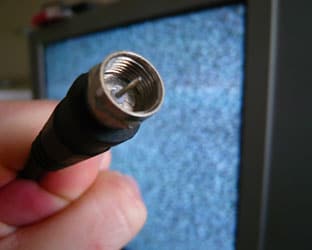As Univision puts its best foot forward to the advertising community at this Wednesday’s television Upfront market presentation in New York a lot more than meets in the eye may be going on backstage.
The Los Angeles Federal Court trial in the Televisa vs. Univision litigation has been postponed by mutual agreement of the parties until July 1st and other industry experts agree that a settlement may now be in the works.
The litigation which arises from Televisa’s attempt to annul the Programming License Agreement "PLA" which ends in 2017 – reached in 1992 between Emilio Azcarraga Milmo (the late father of current Televisa Chairman and CEO Emilio Azcarraga Jean) with recently retired Univision Chairman Jerold Perenchio claims that Univision materially breached its obligations under the PLA and acted in bad faith.
Also at stake are the rights to Televisa’s new media content which were simply not addressed in the PLA.
Televisa’s programming is extremely valuable to Univision. According to Univision’s 2007 public filings it accounts for and compares as follows:
– 15 of the 20 hours of Monday thru Friday prime time programming.
– Profit margins of 73.3% ($517 million in revenues minus $138 million in PLA payments)
– Univision’s overall television division profit margin is 38.5% and non-Televisa accounts for a paltry 21.8% margin.
Of course, Televisa’s consistently effective programming also provides an incalculable aura, lead in and lead out programming value to the overall Univision schedule.
It creates a unique model for audience flow and economics when compared to general market television and even to other Spanish language networks in the US.
If Televisa were to prevail in the litigation a likely appeal by Univision would tie up the matter in the courts for an additional 18 months to two years.
However, if Televisa prevailed again Univision would have to radically modify its business model from that of primarily a program aggregator to that of a program producer.
No other entity, in Mexico or elsewhere produces programming that is consistently viable to appeal to US Hispanics as is Televisa’s.
Univision would also dramatically need to alter it cost structure whether it purchased, produced or achieved its programming goals with a combination of these strategies and it would additionally find Televisa’s programming across the street, at a present or newly established competitor.
Univision’s most recent attempt at a dramatic genre production is a Spanish language adaptation of "Desperate Housewives" which airs only one hour week in prime time, Thus, it is a departure from the unique programming grid strategy proprietary to US Spanish language television networks. After a healthy ratings start this show has dropped to lower ratings levels.
Televisa’s consistently popular soaps have more cogent or persuasive story lines predicated on production values which do not rely on adaptations of successful US general market programs.
Yet, Televisa’s valuable programming would be coveted by Telemundo which is in place or other players with US distribution such as ION Network, the Tribune Company or a consortium of other independent US television stations would give Televisa many and varied choices. Televisa could therefore easily replace the 67% of export revenues it drives from Univision and would have the leverage to negotiate a significantly better PLA deal and a substantial equity stake in a new entity.
So it seems that this is a question of who needs who more in a negotiation to settle it out of court.
Unless it does not prevail, Televisa’s choices are more extensive and economically viable than Univision and its financial sponsors who just acquired the company for $13.7 billion and who have leveraged with a debt of $11billion.
If Univision prevails it will naturally attempt to hold Televisa to the letter of the PLA for the next 10 years.
Hence, as the stakes are high a settlement may have one of three scenarios:
One, Televisa agrees to at least a doubling of the PLA payments and an equity stake.
Two, Televisa does a financial reorganization and Televisa buys into Univision at an advantageous price, with more influence on the management and production within FCC rules.
Three, the five financial sponsors sell 100% or control of Univision to Televisa which is cash rich and backed by those which previously did so in its earlier attempt to buy Univision, Bill Gates’ Cascade Investment and Bain Capital.
–Julio Rumbaut, CEO of Miami based media brokerage and consulting firm Rumbaut & Company.




